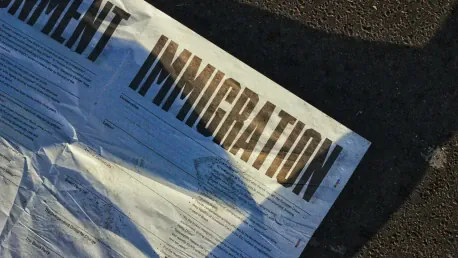Navigating the complexities of hiring international talent has become increasingly challenging for HR professionals, especially with immigration laws continuously evolving. These changes often result not just from political shifts, but also from economic policies and global events. These factors significantly impact the rules and requirements for visas and work permits. Therefore, staying well-informed is paramount for HR departments to effectively manage their recruitment strategies and maintain a dynamic talent pool. Given the ripple effect of these changes on talent acquisition, HR professionals are urged to upgrade their strategies and explore alternative approaches to keep their organizations competitive on a global scale.
Immigration regulations can alter frequently, and these changes can hinder an organization’s capability to attract and retain skilled international talent. This often occurs by modifying visa eligibility criteria or extending processing times. Consequently, HR must consistently adapt and develop their recruitment methods. One approach includes enhancing local talent development programs, which can serve as a buffer against international recruitment challenges. Additionally, exploring alternative visa categories can provide viable options to secure essential talent. Integrating these strategies ensures that organizations do not face talent shortages and can continue to operate efficiently amidst regulatory uncertainties.
Compliance with Immigration Laws
Ensuring compliance with immigration laws is a critical responsibility for HR professionals. This requires meticulous documentation, rigorous background checks, and providing equal benefits to all workers, including those on #B visas. Regular internal audits can help detect and rectify compliance issues before they escalate into legal challenges. Moreover, offering staff training on compliance procedures is vital to establish a culture of awareness and accountability. These measures are not only necessary to prevent legal penalties but also to protect the organization’s standing in the industry.
Implementation of robust HR information systems with integrated compliance features can significantly enhance the management of immigration-related processes. Automation of visa status tracking and documentation minimizes the risk of errors and ensures timely updates. Collaborating with legal experts or immigration consultants is another effective strategy. These professionals can provide invaluable insights and support in navigating through the complex regulatory landscape. Such partnerships are particularly beneficial in interpreting new laws and ensuring that the organization’s policies remain compliant with the latest regulations.
Crafting Flexible and Adaptive Policies
HR policies must be flexible and adaptive to cope with sudden regulatory changes, such as new travel restrictions or alterations in visa processing rules. Development of contingency plans is essential to ensure operational continuity and to mitigate the impact of unexpected changes. Proactive policy-making involves anticipating potential scenarios and preparing appropriate responses in advance. This approach allows organizations to swiftly adapt to regulatory changes without compromising their operational efficiency.
Adopting flexible policies extends to support for employees who might be affected by changes in immigration laws. Transparent and empathetic communication is crucial in this regard. HR should provide clear information about the changes, their implications, and what assistance is available to those affected. Offering resources such as assistance programs and connecting employees with legal counsel helps them manage their personal situations. These efforts contribute to fostering trust and loyalty among international employees, which is essential for maintaining a stable and motivated workforce.
Leveraging Technology and Expertise
Technology plays a significant role in managing immigration compliance efficiently. Utilization of advanced HR information systems with integrated compliance features can automate various processes, reducing the administrative burden on HR departments. These systems can track visa statuses, manage documentation, and alert HR professionals about upcoming expirations or required renewals, ensuring that all legal obligations are met timely. Such technological support streamlines the workflow, enhances accuracy, and minimizes the risk of non-compliance.
Collaboration with legal experts and immigration consultants further strengthens the organization’s capacity to adapt to regulatory changes. These professionals bring specialized knowledge and insights that are invaluable in interpreting complex immigration laws and regulations. They can offer tailored advice on navigating specific challenges and help in developing compliant policies. This partnership allows HR to focus on strategic planning and employee support while ensuring that the organization stays within legal boundaries.
Supporting and Communicating with Employees
Supporting employees affected by immigration laws is essential. Transparent and empathetic communication is crucial, providing clear information about changes, their implications, and available assistance. Offering resources like assistance programs and legal counsel helps employees manage their situations. These efforts foster trust and loyalty among international employees, maintaining a stable and motivated workforce.









